Want to be an organic vegetable farmer? This Wisconsin program is growing the workforce
Cradling a bucket of freshly picked basil, Laura Seleski referenced a common refrain among farmers: It takes a lot of calories to produce the calories people consume.
After five years growing produce in California and Hawaii, Seleski understands the demands and rewards of farming as a career. But she wants to learn more. When it comes to acquiring the necessary skills to grow vegetables in the long term, "You hope you land at the right farm to learn the things you want to learn."
But the informality often associated with entering farming is changing. Seleski, who grew up outside Chicago, returned to the Midwest to work as an apprentice in organic vegetable farm management — the first program of its kind in the U.S. The Wisconsin apprenticeship has grown from three participants in 2019, its first year, to 18 this year.
Last year the nonprofit National Young Farmers Coalition released a survey of more than 4,300 former, current and aspiring farmers ages 40 and younger. More than three quarters were "first generation" in the industry, without prior farming experience.
On paper, Wisconsin's farming apprenticeship program has a relatively low barrier to entry for newcomers to the industry: It doesn't require any previous agricultural experience, and apprentices are paid an hourly wage as farm employees. FairShare CSA Coalition, the industry sponsor for the program, oversees a network of 22 farms statewide that grow organic vegetables and take in apprentices.
The two-year program costs about $700 total, or the cost of three required classes taken virtually through the Northeastern Wisconsin Technical College based in Green Bay.
But that doesn't mean it's easy, given broader issues within farming as a career.
"A lot of farmers don't feel like they're set up to succeed," said Sarah Janes Ugoretz, the apprenticeship program manager with the community supported agriculture nonprofit FairShare CSA Coalition. "It's really fulfilling, and rewarding, but it's a difficult thing to do this as a career, long term."
As part of her doctorate degree in environment and resources, Janes Ugoretz researched the conditions that create positive labor experiences on vegetable farms.
The apprenticeship's focus on management is strategic, she said: It helps newcomers find their way into higher-paying jobs without having to take the leap of starting their own farm. It's all in the interest of building a workforce that has a better chance for long-term stability, with less turnover and burnout.
Finding affordable land, startup capital and housing, as well as paying for healthcare and student loans were among the top challenges among young farmers in the 2022 national survey. Those barriers to entry particularly affected farmers of color, the study found.
About half of the incoming apprentices this year are from out of state, Janes Ugoretz said. She hears from organizations outside of Wisconsin weekly with interest in growing similar programs. Currently, the apprenticeship can handle about 24 apprentices total, she said, which could grow if demand continues.
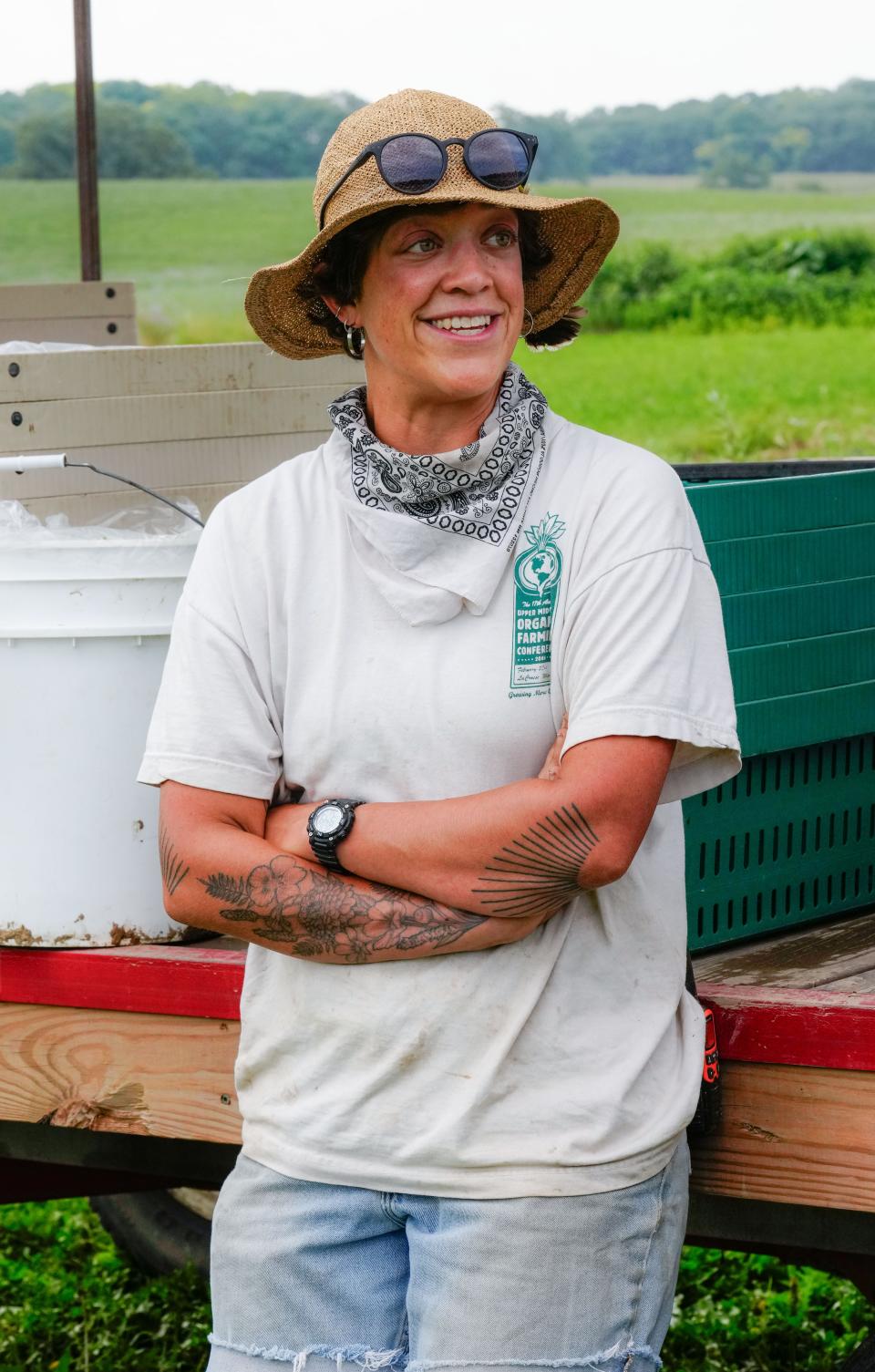
Seleski is one of four apprentices working at the 430-acre Gwenyn Hill Farm near Waukesha, 15 of which are used to grow vegetables. While she's happy to be building a longer career in farming, she wants to see a stronger connection between food — how it is produced, where and by whom — and people who eat it.
"Our whole food system needs to change," she said.
Crop rotation, succession planting: the basics of managing a vegetable farm
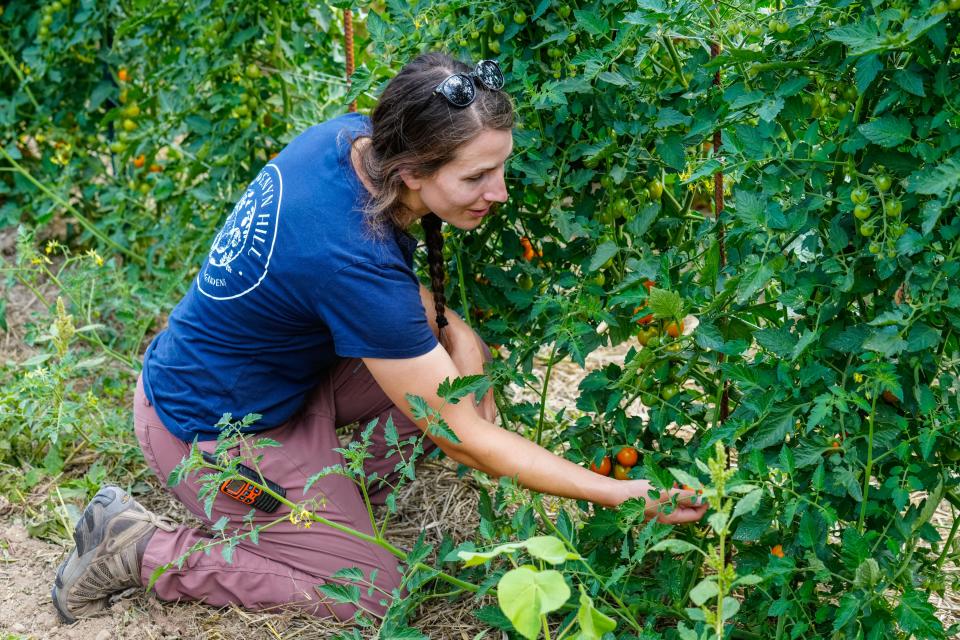
A former apprentice, Liz Lyon now oversees the growth of more than 70 varieties of vegetables at Gwenyn Hill. It's her year-round job to figure out how to make those vegetables grow steadily for several months.
The task requires farmers to merge their knowledge about plants with business. The 2022 national survey found the "cost of production," or making enough money from a product, was a main challenge for young farmers.
One of the main ways Gwenyn Hill pays its bills is through CSA shares. For $600 up front, customers pick up vegetables from the farm bi-weekly, June to October. Weekly pickups cost $1,200. The farm has about 300 shares this season across various payment options, and also sells produce at a farmers market, to a few local stores and restaurants, and at its own "farmstand" store.
During the off-season, Lyon works with apprentices to recap how the previous growing season turned out and to set goals for the next. They plan for elements like the farm's crop rotation, or where seeds should be planted depending on the nutrients in the soil left behind from its previous crop. Green beans, for example, leave behind lots of nitrogen, one of sweet corn's favorite foods.
"You make a lot of very specific plans over the winter, but then you have to be really adaptable, and be able to switch things up based on the weather, or a million other factors," Lyon said.
From February to June, farmers attend to seedlings in the greenhouse. Some plants prefer to be planted as soon after frost as possible, like tomatoes, and harvested as needed all summer. Others, like winter squash and potatoes, grow until early fall, when they are harvested in one go. Broccoli and lettuce are among the vegetables that are "succession" planted a few weeks apart throughout the summer to ensure a steady harvest for CSAs.
Apprentices track their learning against a set of curriculum overseen by the state. They are employed at least 32 hours weekly during the growing season; it's up to the farm whether to pay during the off-season. Apprentices are also paid for the 144 hours they spend on classwork through the technical college.
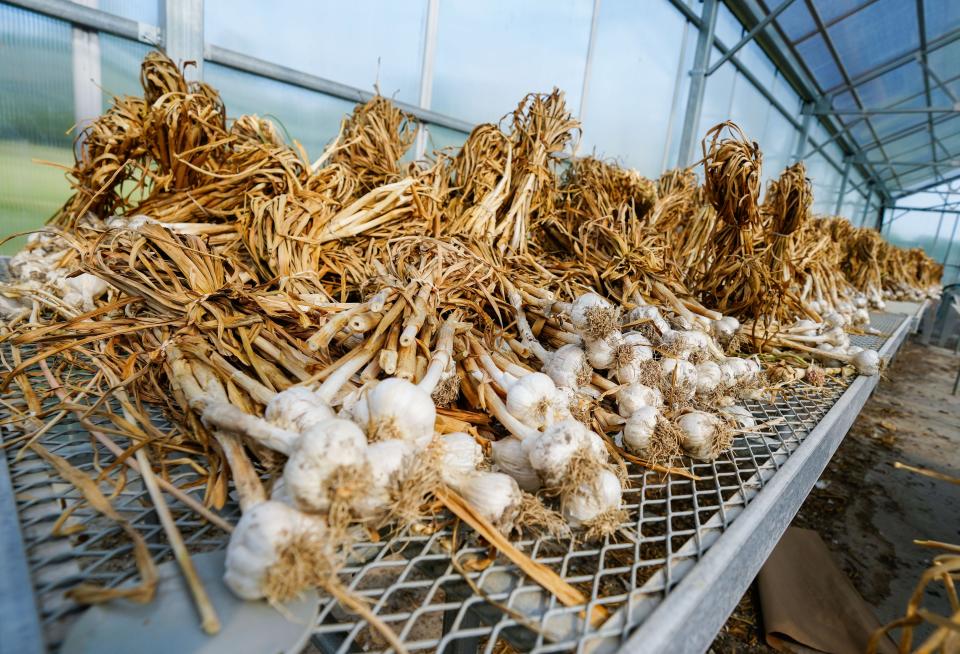
Wages average out to about $14 hourly across current apprentices in the program. Of the 22 farms where they work, 10 also provide housing.
As the program manager, Janes Ugoretz said she talks with potential apprentices up front about housing and transportation, knowing those factors can act as a barrier to entry. Some farms are considering whether to subsidize the cost of employee housing using a stipend.
Apprenticeship aims to help fix retention, turnover in farming workforce
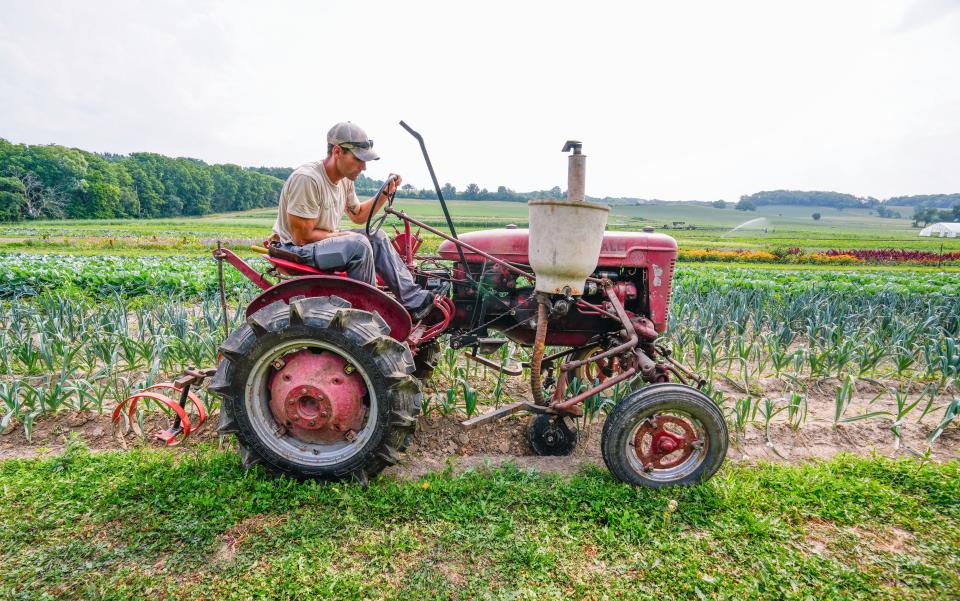
Growing up near Rice Lake, Brian Randall helped out on neighbors' and friends' dairy farms. After finishing a career in the Marine Corps, he returned to Wisconsin and began a farming apprenticeship.
On a Tuesday in early August, Randall spent the morning "hilling" leeks using a vintage red tractor. The process of pulling up soil around their stalks shields them from the sun, protecting the tender, white stalk used in cooking. Nearby, the farm's informal mascot, a Chilean terrier named Riley, watched Randall intently.
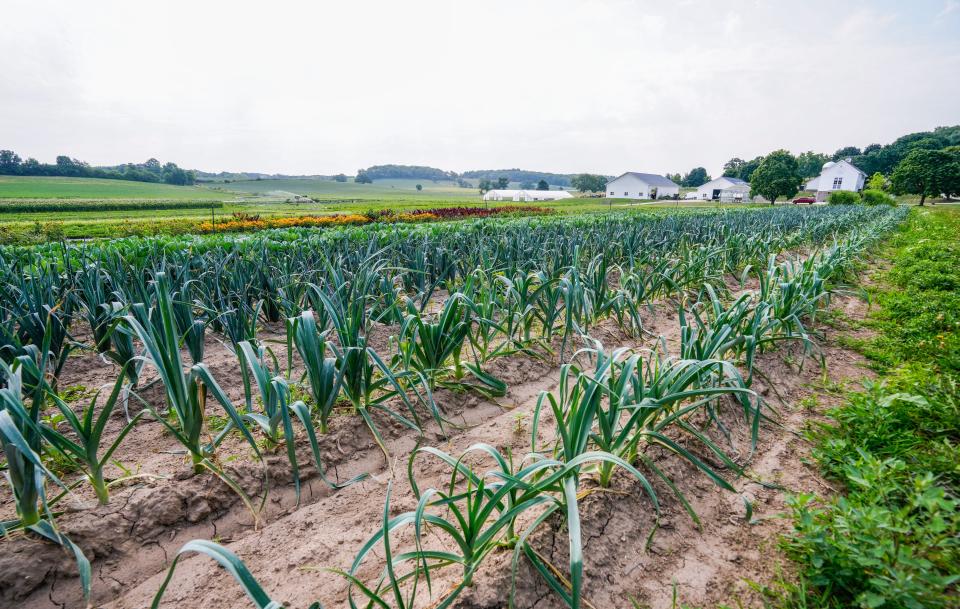
It's this lifestyle — working close to the land, among animals and nature — that draws people to try farming. But running a successful business means retaining employees who stick around for the grittier, dirtier side of the job.
Linda Halley, Gwenyn Hill's general manager, said that's one reason the business decided to support the apprenticeship program: It attracts serious employees — like Randall — who are looking for careers. It gives the business a more stable influx of employees, rather than workers looking for a one-time fun summer job.
"First it was like, 'Yeah, we want to train the next generation of farmers,'" Halley said. "Well, that's a fine statement to make, but are you doing it? And now we're doing it in a much more intentional way. And the program is helping us."

Casual mentoring has always existed in farming, said Harriet Behar, the farmer services consultant with the Organic Farmers Association, a national nonprofit that advocates for expanded organic farming.
Behar spent 16 years running a farmer-to-farmer mentoring program, which is still operating today through the nonprofit Marbleseed. As more organizations have cropped up to support farmers, so too have programs that leverage the benefits of one-on-one mentorship to usher new workers into the industry, she said.
She's also managed an organic farm since 1989. The market is out there, she said: think local produce in grocery stores, farm-to-table restaurants and farmers markets. What's key is learning how to get started selling, sustainably.
"In farming, you have to love it," she said. "If you're just kind of doing it as, 'I'm going to make some money, it's kind of a job' — forget it.'"
Want to get involved?
Information about Wisconsin's organic vegetable farm manager apprenticeship can be found through the Department of Workforce Development tinyurl.com/yc3j229z or through the FairShare CSA Coalition at www.csacoalition.org/apprenticeship.
The FairShare CSA Coalition website includes a tool for finding CSA farms in Wisconsin at www.csacoalition.org/farm-search.
Information about Marbleseed's farmer-to-farm mentoring in program in Wisconsin, Minnesota, Iowa, Illinois, Indiana, Michigan, North Dakota and South Dakota can be found at tinyurl.com/3pfcaxsm.
Cleo Krejci covers workforce development, job training and post-K-12 pathways for the Milwaukee Journal Sentinel. You can reach her at CKrejci@gannett.com. Please consider supporting journalism that informs our democracy with a tax-deductible gift to Report for America.
This article originally appeared on Milwaukee Journal Sentinel: For $700, two-year program trains new organic vegetable farm managers

